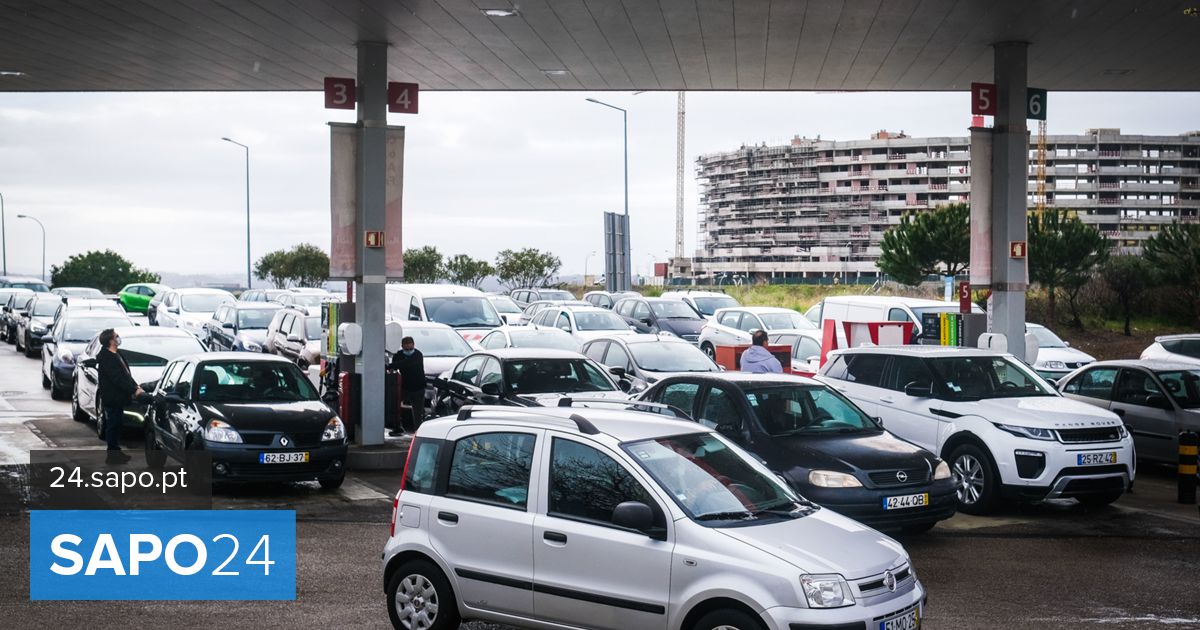After diesel and gasoline prices were announced next week, in increments of more than 14 and eight cents a liter respectively, the car lines are now flat at two filling stations in Amadora, both in the low-cost (‘low-cost’) segment and still containing ‘stock’ for both types. of fuel.
At a gas station in Damaya, in that municipality in the Lisbon region, Fatma Neves is waiting for her turn to fill her tank, and, as Lusa tells, she is not completely satisfied with the high prices.
“It’s another one [subida], not? This makes no sense,” he regrets, considering that the support announced by the government on Friday to counter the increases, is “nice talk” from politicians who “always go into the pockets” of the Portuguese.
Fatima Nevis says she does not understand that fuel taxes increase proportionally to the rise in the price of a barrel of Brent crude, the standard crude for Europe, and that the government must set a tax value and that changes in fuel prices are subject only to increases and Brent crude ratios.
“Obviously the situation is critical, because it is a state of war, but the basis is that it is very wrong, and the government does not have to look for taxes because of external differences entirely,” he points out.
For Fatima Neves, the situation is worrying, because driven by the rise in fuel prices, the prices of other essential goods and services, such as transportation, have also gone up.
At the same pumps, Felipe Vieira shares the opinion that government subsidies are “insufficient” and that the problem is the weight of taxes on fuel, which represent about 60% of the final price for the consumer.
“I think the government should lower the tax on petroleum products and have a tax rate similar to the tax rate in Spain, that would be an effective measure,” Lusa said.
At a gas station in Alfragide, also in the municipality of Amadora, queues are longer, with dozens of cars “turned off” until their turn.
There, Simao Fortuna says it’s “normal” for fuel prices to rise, given the context of the war in Ukraine and economic sanctions against Russia, and even “knowing where much of the world’s oil comes from.”
“However, it is difficult to understand the price of fuel now at what it is, when the price of a barrel was previously what it is now and the price to the consumer was not,” he asserts, bearing in mind that the support of the national executive “helps a little” to support the increases .
The situation is exacerbated for those who frequently have to take long trips, as in the case of Catarina Salgado, a student who has been displaced from the Lisbon region.
However, the young woman considers support “better than nothing”, but stresses that “there must be economic policies to combat this kind of situation.”
“For example, this type of tax is usually on cars that use petrol and diesel for environmental reasons. [podiam] Lower taxes on electric cars so that people buy more electric cars than diesel and petrol cars. I think it would be a good metric,” the student suggests.

“Wannabe internet buff. Future teen idol. Hardcore zombie guru. Gamer. Avid creator. Entrepreneur. Bacon ninja.”

